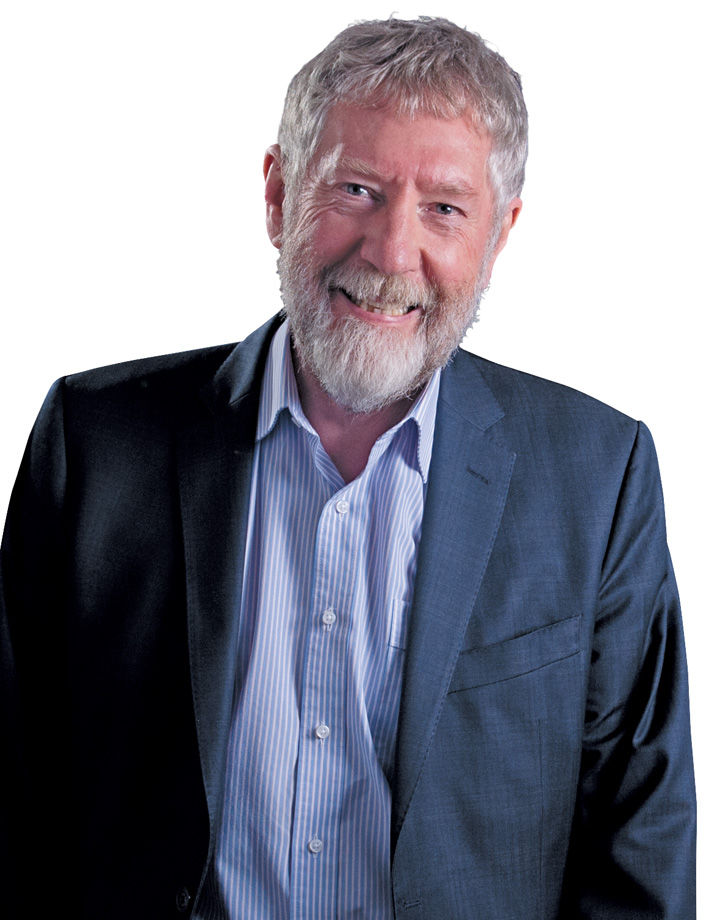
“The 75 per cent by 2030 emissions policy the Greens took to the election will still be the goal. Having increased their representation from 10 to 16 members across the federal parliament, they have a stronger claim to be heard,” writes political columnist MICHAEL MOORE.
THE Greens have not let the perfect be the enemy of the good. This was the mistake they made 10 years ago in preventing a price on carbon, although some have attempted to rewrite that history.

The climate change Bill compromise with Labor is an important step forward on this occasion.
This is a first step. The Greens are right, in principle, to seek a stop to all new fossil-fuel projects. However, by accepting Labor’s approach of an emissions reduction target of 43 per cent by 2030, they have not lost their ability to make demands for a more strident approach.
The 75 per cent by 2030 emissions policy the Greens took to the election will still be the goal. Having increased their representation from 10 to 16 members across the federal parliament, they have a stronger claim to be heard. Further action on climate can be expected considering the approach of independent Senator David Pocock and others.
As Adam Bandt told the National Press Club, the Greens will “pull every lever at our disposal” to stop new coal and gas projects arguing that they will “continue to fight individual projects around the country”.
He went further in calling on “all Australians to join this battle… to save our country, our communities and indeed our whole civilisation from the climate and environment crisis”.
Australia is the world’s second largest exporter of gas and coal. However, Prime Minister Anthony Albanese has made clear that the Labor Party will not support stopping fossil-fuel projects because he is concerned about the “devastating impact on the Australian economy”. Other concerns on his mind might include the stance taken by a range of unions and the impact on marginal electorates.
Albanese was reported in “The Guardian” as saying: “If Australia today said we are not going to export any more coal, what you’d see is a lot of jobs lost; you would see a significant loss to our economy, significantly less taxation, revenue for education, health and other services, and that coal wouldn’t lead to a reduction in global emissions. What you would see is a replacement with coal from other countries that’s likely to produce higher emissions… because of the quality of the product.”
He went on to argue that Australia wants to be part of an international effort to fight climate change. At the end of July, Australia joined another 160 countries in supporting an historic resolution at the UN, declaring access to a clean, healthy and sustainable environment as a universal human right. The resolution called upon “states, international organisations and business enterprises to scale up efforts to ensure a healthy environment for all”.
In July, the UN also supported a “Fossil Fuel Non-Proliferation Treaty”. This treaty began with the notion to “end expansion of any new fossil-fuel infrastructure and production”. To do this, the treaty suggests “immediately ending activity and investment across all new or expanded fossil-fuel exploration, extraction and building of infrastructure, in line with the best available science”.
The position taken by the Greens is consistent with the intention of this Treaty. However, by having the maturity to work with the government and take this good intention step by step, there is likely to be a better outcome than voting against the legislation. The last time that this happened, the Greens were responsible for around 10 years of lost opportunity to modify and build on carbon pricing as an important step in reducing emissions.
The second phase of the “Fossil Fuel Non-Proliferation Treaty” is to “phase out existing production and use of fossil fuels in a fair and equitable manner”.
The treaty recognises some of the international challenges in adding “to address existing inequity, we call on high-income countries to provide financial, technological and other support to low and middle-income countries in the move away from fossil fuels, ensuring the transition reduces poverty rather than exacerbating it”.
The third part of the UN plan is to attempt to “fast-track real solutions and ensure a just transition”. In doing so, they recognise the enormity of the problem, but also identify that sensible steps need to be taken to ensure the most equitable outcomes.
The Greens have taken a stance consistent with the international treaty and in a manner that will have the potential to continue influencing government.
Who can be trusted?
In a world of spin and confusion, there’s never been a more important time to support independent journalism in Canberra.
If you trust our work online and want to enforce the power of independent voices, I invite you to make a small contribution.
Every dollar of support is invested back into our journalism to help keep citynews.com.au strong and free.
Thank you,
Ian Meikle, editor




![Teacher Vanessa Jones has been living in Higgins since 2001, and while she loves the area, she says she is “fed up” with the neglectful ACT government.
The Higgins shops have been completely abandoned, says Vanessa, preventing the opportunity for residents to have a community-centred space to socialise.
They only received bins nine months ago, she says, and requests for a water station and repairs to the bus station have gone unanswered.
“It’s very, very slow,” says Vanessa.
“I asked for the zebra crossing on Fullagar [Crescent] to be repainted, and we had to wait about six or nine months.
“That’s just such a long time… we pay a lot of rates.”
Vanessa says assistance from the government only seems to go to communities with time-rich and assertive communities, leaving places such as Higgins, where the majority of households have both adults working full-time and English may not be the first language of the family, at an automatic disadvantage.
“If you’ve got two people working, paying a mortgage, raising two or three kids, they don’t have the time,” says Vanessa.
Vanessa says the lack of attention quieter places such as Higgins is receiving is starting to look a lot like favouritism.
Read the full article on our website citynews.com.au
#canberra #canberranews](https://citynews.com.au/wp-content/plugins/instagram-feed/img/placeholder.png)
Leave a Reply